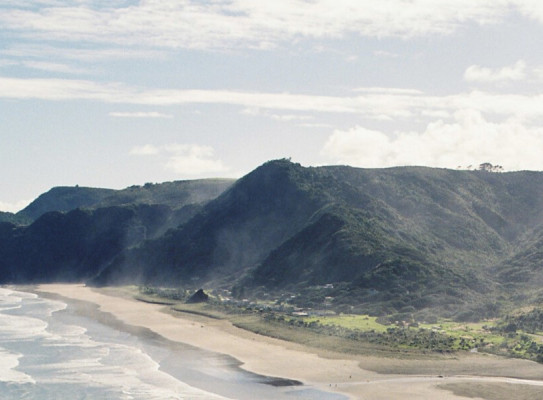GNS gets Toitū carbonreduce certification 5 years in a row

Toitū Envirocare’s carbonreduce programme encourages organisations in Aotearoa New Zealand to manage and reduce their carbon emissions.
Organisations set reduction goals and get their emissions measured against these goals each year. Achieving the certification means meeting the programme’s requirements. Recently, GNS Science received its fifth certification for Toitū Envirocare’s carbonreduce programme.
The measurements are given in tCO2e (tonnes of carbon dioxide equivalent). For example, if you fly from Auckland to Wellington and back, you will emit 0.16 tCO2e.
GNS’ total emissions in 2022/2023 were 2,427.33 tCO2e. That’s 22% lower than the 2021/2022 total of 3,096.29 tCO2e and 45% lower than our 2018/2019 baseline total of 4,432.12 tCO2e.
Angela Griffin, who leads our carbonreduce project, said: “This shows that GNS is committed to acting in an environmentally ethical and responsible manner and supporting an environmentally-conscious culture while continuing its science.”

Angela and Gary Wilson (GNS’ former GM Research Strategy and Partnerships) instigated participating in the carbonreduce programme. After compiling the 2018/2019 data, they noticed that our top five activities accounted for more than 90% of our emissions, so we committed to reducing these emissions, as well as reducing our overall carbon emissions by 20% by 2025. GNS’ overall ambition is to be carbon neutral by 2050.
-
Our organisation's sub targets are
- Air travel (15% reduction)
- Staff commute (35% reduction from 2018/2019 estimate)
- Company vehicle use (35% reduction)
- Electricity (10% reduction)
- Natural gas (10% reduction)
-
Strategies to meet these sub-targets (devised during the early days of COVID-19) include
- Encouraging online meeting attendance
- Adopting the “why fly” guidelines
- Implementing rideshare and EV parking preferences
- Installing more EV charging stations
- Supporting the electrification of the GNS vehicle fleet
- Commissioning an energy audit for the sites we own
So why does GNS need to reduce its emissions?
Sheena Thomas, Interim GM Research Strategy and Partnerships, pointed out that given GNS’ first-hand understanding of the impact of emissions locally and globally, and particularly on our Pacific neighbours, we need to be role models.
“Our scientists have been involved in climate science research for decades, as well as playing a major role in enabling New Zealand’s transition to a low-carbon future,” Sheena said.

As leaders in climate research and renewable energy, we need to ‘walk the talk’ on emissions reduction.
Angela said, “It’s important for GNS to continue showing leadership in helping New Zealand reduce our carbon emissions. We’ve seen the impact a changing climate is having on our country, and while we may be small on the world’s stage, we all need to play our part.
“For me personally, I’ve really enjoyed connecting and working with like-minded people in other CRIs and organisations around New Zealand, to reduce our collective carbon emissions. GNS is one of the first CRIs to report on its carbon emissions, and passing on the knowledge I am gaining on this journey helps everyone achieve their goals.”